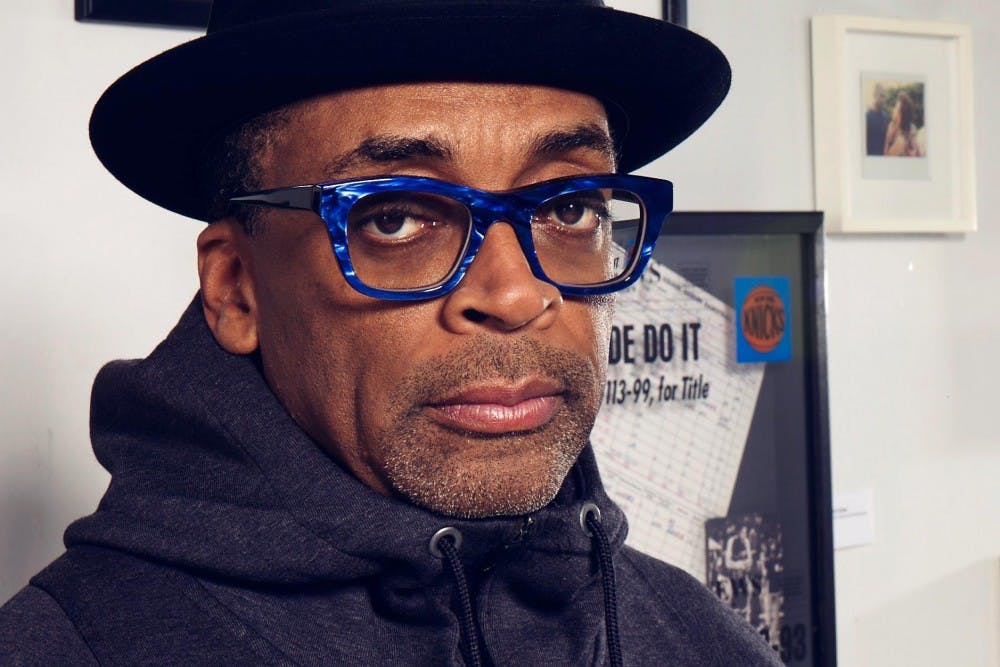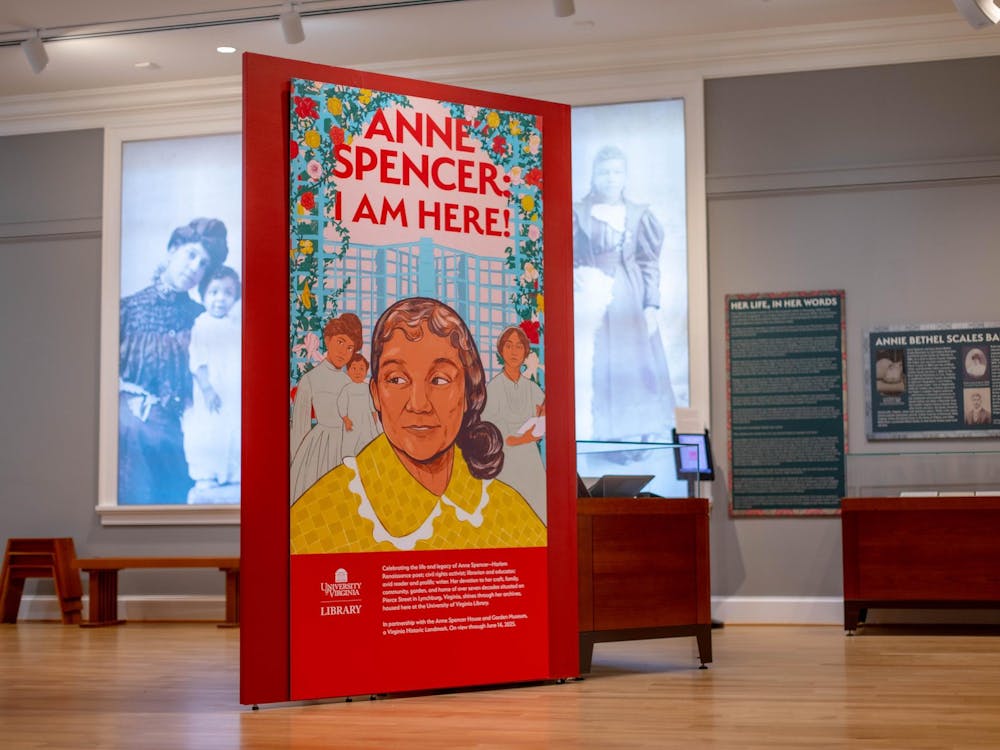The first thing Spike Lee did after walking onstage Saturday was to request a moment of silence from the audience — “for Heather and her family.”
The second thing Lee did was clarify his presence at the Virginia Film Festival.
“I got this invitation and accepted it before Aug. 12,” Lee said. He went on to say he didn’t want anyone thinking of him as a “northern rabble-rouser,” describing his own roots in Virginia and elsewhere in the South. “There are some connections here,” Lee said.
It was 1:30 p.m. and the Paramount Theater was packed with people excited to see Lee’s classic documentary “4 Little Girls,” about a Birmingham church bombing and its title victims, and his new short film “I Can’t Breathe,” focusing on the Eric Garner footage. They were also eager to see the man himself.
Lee received a standing ovation when he first walked onstage, and continued to receive applause at various points throughout his talk with Maurice Wallace, associate professor and associate director of the Carter G. Woodson Institute for African-American and African Studies. As expected, the conversation between Wallace and Lee quickly turned to President Donald Trump.
“We’re in a very, very dangerous time here in the United States of America,” Lee said. “This guy has the nuclear code!”
“I hope it’s the case that they gave him the fake numbers,” Lee later joked.
That was Lee’s style throughout the interview — tackling a deadly serious topic with respect, but finding opportunity for humor when he could.
When Wallace asked him to give an introduction to “I Can’t Breathe,” Lee started to give a summary of his relevant film “Do the Right Thing.” “To those who haven’t seen it” he started, only to have an audience member shout, “I’ve seen it!”
“I’m not speaking just to you!” Lee said, shouting back without a moment’s hesitation.
He went on to describe “Do the Right Thing” as “a very difficult period in New York City,” then referenced a specific scene in which a character is strangled to death by a cop. “That’s a movie! This was real life,” he said, referring to Garner’s similar death by strangling.
Wallace and Lee also spent some time discussing the history of “4 Little Girls.”
Lee described the documentary as depicting “the heinous act of home-grown, American terrorism,” adding that, “when you’re killing people, you’re a terrorist.”
Lee then explained his focus on the grieving families of the girls in the documentary, particularly the mothers.
“I wanted to convey the pain, the loss … it never goes away,” he said.
When Wallace used the state of Birmingham, Ala. at the time to draw a parallel to the current situation in Charlottesville, Lee was quick to speak up.
“I don’t think Charlottesville’s anything like Birmingham was back then,” he said.
However, Lee then used this as a jumping-off point to address much of the audience.
“My white audience members,” Lee said. “We must get rid of these false narratives.”
Lee described the various ways in which America has a morally corrupt past, calling it a country “built upon genocide of Native Americans and slavery.”
“Your boy Thomas Jefferson was a slave owner,” Lee said. “Do not be defensive about that.”
Lee ended this address with a bold but common-sense statement.
“Let’s be honest,” he said. “If we don’t acknowledge the history of this country, we can’t move forward.”
Later in the talk, Lee felt the need to speak to another demographic of the audience.
“Parents — or grandparents, too — kill dreams more than anybody,” Lee said. “Don’t crush your children’s dreams.”
Wallace was comparatively quiet throughout the Q&A session, but also brought some humor to the conversation at times.
“If you don’t get to church tomorrow, it’s okay,” he said, referring to Lee’s speech as a “sermon.” “I’ll be in the back with a plate for collection.”
Lee had even more to say beyond the subjects of race and parenthood.
“Overnight success does not exist,” he said, at this point addressing the “new generation” in the audience. “If you’re not spending half a day on your craft, then you’re just messing around.”
He described his own craft and its recent fruits in the form of upcoming movie “Black Klansman.”
After a brief discussion of this project, Lee abruptly stood and addressed the audience with a simple farewell and “goodnight.” After shaking a few audience members’ hands, he left the stage to tremendous applause and shouts of, “We love you, Spike!”
Though Lee and Wallace’s talk was an event in itself, it was time for the actual screenings to begin. “I Can’t Breathe” is a short documentary with brief footage from “Do the Right Thing” added. The bulk of the film is comprised of an interview with Ramsey Orta, who filmed Eric Garner’s choking at the hands of police.
It was impressively, simply shot, clocking in at less than an hour, and contained incredible emotional power in its simplicity. The most memorable line from the film was when the interviewee asked Orta, “Why did [the police] do this?” Orta thought for a moment and responded, “power.”
After “I Can’t Breathe,” “4 Little Girls” was screened. Originally released in 1997, the documentary retained a disturbing resonance to the audience Saturday. “4 Little Girls” is everything a documentary should be, taking time to alternately focus on the individuals affected by the event and then the event itself in the larger context of Birmingham and the 1960s. The film went even further — namely, decades into the future — to detail the eventual, though tragically delayed incarceration of at least some of the KKK members responsible for the bombing.
By the time the event was officially over, some three and a half hours later, it is safe to say there were few dry eyes in the theater. Spike Lee came to Charlottesville for the first time in 24 years, and he more than lived up to expectations.






